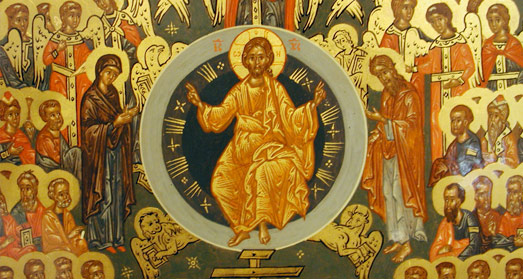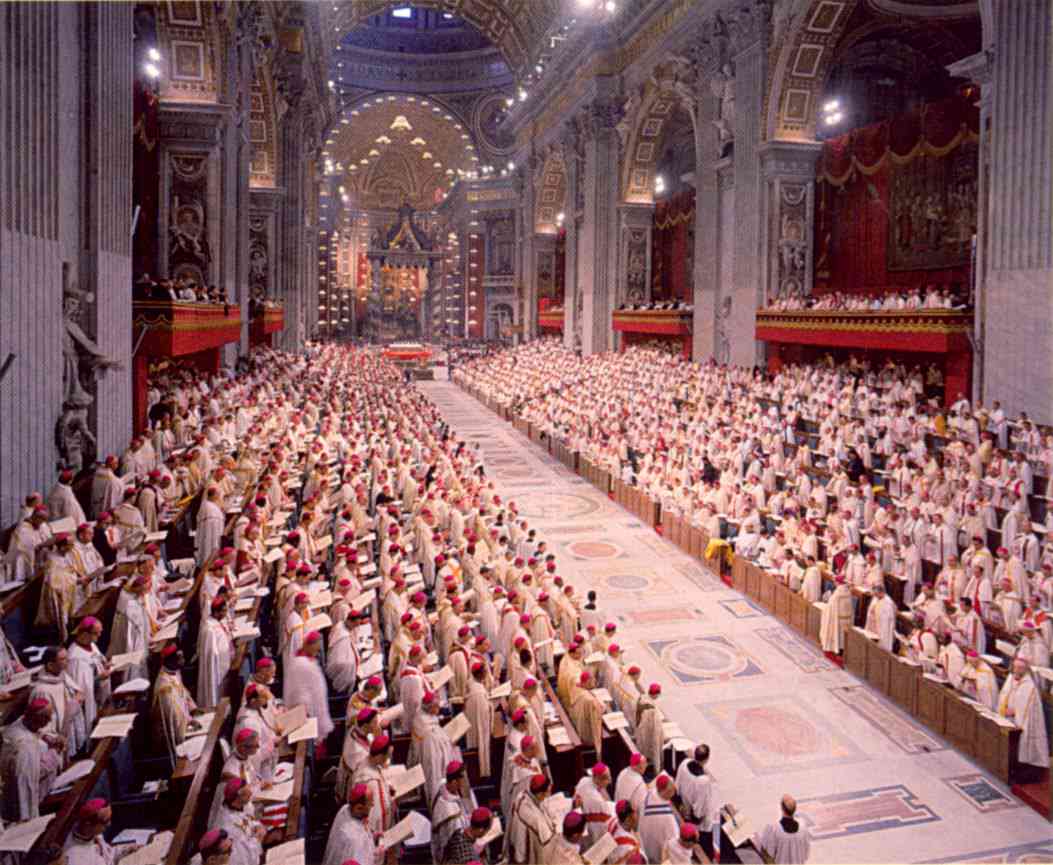Understanding Indulgences

To say there is confusion and misrepresentation among non-Catholics on the topic of Indulgences may well qualify as the proverbial “understatement of the year.” In this post, we are going to consider four of these misapprehensions. But first, we need to understand the truth concerning Indulgences. CCC 1471 gives a succinct definition:
An indulgence is a remission before God of the temporal punishment due to sins whose guilt has already been forgiven, which the faithful Christian who is duly disposed gains under certain prescribed conditions through the action of the Church which, as the minister of redemption, dispenses and applies with authority the treasury of the satisfactions of Christ and the saints.
An indulgence is partial or plenary according as it removes either part or all of the temporal punishment due to sin. The faithful can gain indulgences for themselves or apply them to the dead.
The theology of Indulgences is rooted in four very biblical notions.
1. Sins that are forgiven by God may still require temporal punishment. This is a matter of common sense as well as it is a matter of Public Revelation. For example, if one of my sons were to put a rock through the window of our house, I would forgive him of this transgression as soon as he expresses sorrow. However, in justice, and for my son’s good, I would require him to repay the cost of the damage. This would serve to teach him of the serious nature of his actions as well as the damage that disobedience causes. Moreover, in the process of working to earn the money to pay for what he has done and in giving up some of that hard-earned cash, he will become a more virtuous person.
I use the analogy of my relationship with my sons for a reason. In Scripture, we find that God is revealed to be our Father who disciplines us—his children.
[God, the Father] disciplines us for our good, that we may share his holiness. For the moment all discipline seems painful rather than pleasant; later it yields the peaceful fruit of righteousness to those who have been trained by it” (Heb. 12:10-11).
The Greek text indicates that this discipline of God, the Father, leads to the fruit of justification (Gr.—dikaiosunes). This suffering imposed by God is part of the very process of justification where the believer is finally made just and worthy of heaven.
King David is perhaps the classic example of just what we are talking about. In II Samuel 11-12, we read the sad tale of how David committed the sins of murder and adultery, but then later acknowledges his sin and repents. In 12:13, the prophet Nathan declares to David:
The Lord has put away your sin, you shall not die.
Notice, David’s sins were forgiven, yet that same prophet also declared:
Now therefore the sword shall never depart from your house, because you have despised me, and have taken the wife of Uriah the Hittite to be your wife… Behold, I will raise up evil against you out of your own house; and I will take your wives before your eyes, and give them to your neighbor, and he shall lie with your wives in the sight of this sun… because by this deed you have utterly scorned the Lord, the child that is born to you shall die (II Sam. 12:10-14).
This is some pretty severe punishment to be sure, but you’ll notice it is temporal by nature, not eternal.
Later in his life, after having reflected upon all that happened to him, this same King David would write in Psalm 119:71: “It is good for me that I was afflicted, that I might learn thy statutes.” The temporal punishment imposed by God upon him, he knew, was for his own growth in virtue—for his own good.
2. The People of God have always been understood in Scripture to be able and responsible to make atonement for the temporal punishment due not only to their own sins, but they can also aid others in this purification process as well. Proverbs 16:6 says, “By loyalty and faithfulness iniquity is atoned for…” That text could hardly be clearer. Moreover, St. Paul says, in Colossians 1:24,
Now I rejoice in my sufferings for your sake, and in my flesh I complete what is lacking in Christ’s afflictions for the sake of his body, that is, the church…
The “iniquity” mentioned as being able to be atoned for cannot be mortal sin. Even one mortal sin against an infinitely holy God requires an infinite expiation. Only the infinitely meritorious sacrifice of Christ can expiate this sin. The implication here is temporal punishment can be atoned for, with God’s help, by our own prayers and sacrifices, or as Proverbs 16:6 said, “by loyalty and faithfulness…”
Colossians 1:24 adds our sufferings as efficacious in remitting punishment due for sins in the lives of others as well. This is an important factor in the doctrine of the Communion of Saints that underlies the Catholic and biblical notion of Indulgences. As members of the body of Christ, we have the power to effect healing in one another when it comes to sins and faults that are not mortal.
I John 5:16-17 explains it this way:
If any one sees his brother committing what is not a mortal sin, he will ask, and God will give him life for those whose sin is not mortal. There is sin which is mortal; I do not say that one is to pray for that. All wrongdoing is sin, but there is sin which is not mortal.
Notice, St. John says one Christian can ask and God will communicate “life” (Gr.—zo-ay, which refers to the divine life of God communicated to the believer through grace) to the one who sinned as long as the sin was not mortal. This is true because the one who sins mortally would be cut off from the body of Christ and there would be no way to communicate healing directly to the one who sinned mortally.
This really makes sense when we consider the metaphor of the “body” St. Paul uses for the People of God in both I Corinthians 12 and Romans 12. If one member of a body, let’s say a hand, is wounded, the rest of the body will immediately and organically affect healing in the wounded part. So it is by analogy with the “Body of Christ.” If one member is wounded the rest of the body can affect healing by virtue of the fact that “the body” is organically linked, so to speak, as members of the same body. St. John says we, as members of Christ, can communicate “life” or healing to the wounded member through our prayers.
But notice, St. John also says if the person commits mortal sin, “I do not say that one is to pray for that.” St. John would hardly be commanding non-prayer in any sense. Jesus tells us to “love your enemies and pray for those who persecute you” in Matt. 5:44. St. Paul tells us to “pray for all men” in I Tim. 2:1. His point is we cannot pray for and directly affect healing in the one who is in mortal sin because he is cut off from the divine life that flows from member to member in the Body of Christ. Of course, we can pray the one cut off from Christ in mortal sin be restored to Christ through the particular grace of repentance.
3. There is nothing in Scripture indicating this communication of divine life between members of the Body of Christ ceases at the end of life on earth. Indeed, if there is need for purification at the time of death, this purification must occur in order for the Christian to attain heaven (see Matt. 5:48; Heb. 12:14). II Maccabees 12:46 is a great example from the Old Testament that this purification can in fact continue in the next life:
Therefore [Judas Maccabeus] made atonement for the dead that they might be delivered from their sin.
Many Protestants will respond claiming this text is meaningless because they do not accept II Maccabees as Scripture. But really, that is beside the point. Even if one does not accept its canonicity, as an historical document, it provides accurate information about the life and faith of the Jewish people shortly before the advent of Christ, and specifically, that they already believed they could pray for the dead to be forgiven. Or, as II Maccabess 12:39-46 says it,
Judas and his men… turned to prayer, beseeching that the sin which had been committed might be wholly blotted out… [Judas Maccabeus] also took up a collection, man by man, to the amount of two thousand drachmas of silver, and sent it to Jerusalem to provide for a sin offering…
The Jews believed that the sacrificial offerings of members of the People of God could “wholly blot out” the sins of those who had died. This makes all the more significant Jesus words in Matt. 12:32:
And whoever says a word against the Son of man will be forgiven; but whoever speaks against the Holy Spirit will not be forgiven, either in this age or in the age to come.
Not only do we simply have nothing in Scripture that condemns this common practice of ancient Jews—a practice, by the way, that continues to this day in Orthodox Jewish circles—but Jesus himself implies this to be a good and pious practice.
4. The Church, through the ministry of the forgiveness of sins communicated to her by Jesus Christ himself, has the power to remit not only the eternal consequences of sin through the Sacrament of Confession, but also the temporal punishment due for sin through Indulgences. In John 20:21-23, in the plainest of terms, Jesus communicated his power to forgive sins to the apostles:
Jesus said to [the apostles] again, “Peace be with you, as the Father has sent me, even so I send you.” And when he said this, he breathed on them, and said to them, “Receive the Holy Spirit. If you forgive the sins of any, they are forgiven; if you retain the sins of any, they are retained.”
In Matt. 16:18-19, Jesus promised the authority of the keys of the kingdom to St. Peter as well as the authority to “bind and loose.” Two chapters later, in Matt. 18:18, he promised the power to “bind and loose” to all of the apostles in union with Peter. This authority of “binding and loosing” involves not only a declatory power in defining the faith of Christians, but it also involves restoring the fallen to full communion with God and the Church in the forgiveness of sins. The Catechism of the Catholic Church declares:
(1444) In imparting to his apostles his own power to forgive sins the Lord also gives them the authority to reconcile sinners with the Church. This ecclesial dimension of their task is expressed most notably in Christ’s solemn words to Simon Peter: “I will give you the keys of the kingdom of heaven, and whatever you bind on earth will be bound in heaven, and whatever you loose on earth will be loosed in heaven” “The office of binding and loosing which was given to Peter was also assigned to the college of the apostles united to its head.”
(1445) The words bind and loose mean: whomever you exclude from your communion, will be excluded from communion with God; whomever you receive anew into your communion, God will welcome back into his. Reconciliation with the Church is inseparable from reconciliation with God.
One way to understand the Church’s authority to remit temporal punishment due to sin is via a fortiori argumentation. This is an argument that says, “If X is true, then how much more is Y also true.” Both Jesus and St. Paul use this type of argumentation (see Matt. 6:25-34; Luke 11:13; Romans 5:8-10; 8:31-32; 11:22, etc.).
Thus, if Jesus Christ gave his Church the power to forgive mortal sins and the eternal punishment due to these sins, how much more would that same Church be able to forgive the merely temporal punishments due to sin.
The Misconceptions
1. The Catholic Church teaches (or has taught) Indulgences not only remit sins, but they can remit sins before the fact. And for a price, of course! Thus, this first point really covers two misconceptions: 1) Indulgences remit sins before the sin is committed. 2) You can buy Indulgences.
Several years ago, my wife and I watched a video put out by “New Liberty Videos” called “The Forbidden Book,” a hit-piece targeting the Catholic Church, wherein the narrator presents a document allegedly written by Pope Leo X cataloguing various prices the Roman Pontiff declared one had to pay to the Church for Indulgences so that one could freely sin without guilt! For a price, you could (among other things, I just jotted down a few of them):
• Ravish a Virgin – $2
• Kill a man – $1.75
• If a priest, keep a mistress or concubine – $2.75
Or, how about this one?
• To be absolved of all sins whatsoever – $12.00
What a deal!
Of course, this list is a complete fraud. The folks at www.apologetica.org have several articles in English (it’s a Spanish-language site, but these articles are in English) that do an excellent job in exposing this fraud:
http://www.apologetica.org/site/index.php?option=com_content&task=view&id=461&Itemid=5)
Unfortunately, these lies are found peppered across the board among anti-Catholic literature. So what is the truth of the matter?
First off, Indulgences do not even remit sins at all; they remit the temporal punishment due for sin. And, of course, this is only so after the sin has been committed and one has been forgiven of the guilt of that sin in Confession!
And just for the record: the Catholic Church does not teach and has never taught that one can “buy” Indulgences.
The confusion here is at least partially rooted in the fact that the Church used to grant what are referred to as “alms-Indulgences.” There is nothing inherently wrong with the practice; in fact, it is very much rooted in the Scriptures inasmuch as almsgiving has always been considered a meritorious and salvific act. It’s mentioned by Jesus himself in Luke 11:41:
But give for alms those things which are within; and behold, everything is clean for you.
Jesus is here emphasizing alms must be given out of the right motivation in order to truly be meritorious before God.
In Acts 10:3-4, and 34-35, both the angel Gabriel and St. Peter combine to tell us that Cornelius’ alms were instruments whereby he merited from the Lord:
About the ninth hour of the day he saw clearly in a vision an angel of God coming in and saying to him, “Cornelius”… “What is it, Lord?”… “Your prayers and your alms have ascended as a memorial before God…”
(34) And Peter opened his mouth and said: [with regard to Cornelius] “Truly I perceive that God shows no partiality, but in every nation anyone who fears him and does what is right is acceptable to him.”
Thus, almsgiving is still, as a matter of Faith, taught to be meritorious if done with the proper motives. However, there was confusion among some of the Catholic faithful in the late 15th and early 16th centuries with regard to Indulgences in relation to alms. The perception was, among some, that the act was a mere mechanical process. You give this, and you get this (the remission of temporal punishment due for sins), apart from the necessary predispositions that must be present. As a result, Pope St. Pius V eliminated “alms-Indulgences” in 1567. That discipline of the Church remains in force.
But this in no way means the Church once used to “sell” indulgences. That is a non-sequitur.
3. This misconception goes straight back to Martin Luther who, in his notorious “95 Theses,” no. 82, famously asked:
Why does not the pope empty purgatory for the sake of holy love and the dire need of the souls that are there…?
The question itself shows a rather childish understanding of Purgatory and Indulgences. That would be like saying, “If the Church can remit the eternal consequences of sin though the Sacrament of Penance, why doesn’t she just declare everyone in the world to be forgiven?”
The Church cannot do either because there are divinely mandated prerequisites that must be fulfilled before the Church can remit either sins or temporal punishment due for sins that have been forgiven.
In the case of Confession, one has to be sorry for his sins, confess his sins with a firm purpose of amendment to avoid sin in the future, and be absolved by a validly ordained priest, in order to have his sins forgiven.
In the case of Indulgences, one must perform whatever God through his Church prescribes as being necessary to gain an Indulgence. With regard to a plenary Indulgence, he must be detached from all sins both mortal and venial, pray for the intentions of the Pope, make a good Confession, and receive communion within about a week of performing the requirement for the Indulgence. If all of these requirements are not met, he would receive a partial Indulgence, in accord with his disposition at the time he performs the required works. So the Church just can’t say “whammo” and it’s done!
4. There is much confusion over the idea of numbers of “days” with regard to Indulgences. Jimmy Akin clears up the difficulty in his new book, The Drama of Salvation, (p. 74):
… in the past, a certain number of “days” were attached to many indulgences. These were not days off in Purgatory. Instead, they expressed the value of an indulgence by analogizing it to the number of days’ penance one would have done on Earth under the penitential practices of the early Church.
Moderns had lost touch with the ancient system, which made the reckoning of such “days” confusing. The practice was abolished in 1967 in Pope Paul VI’s constitution Indulgentiarum Doctrina.
If you enjoyed this and would like to learn more, click here.






